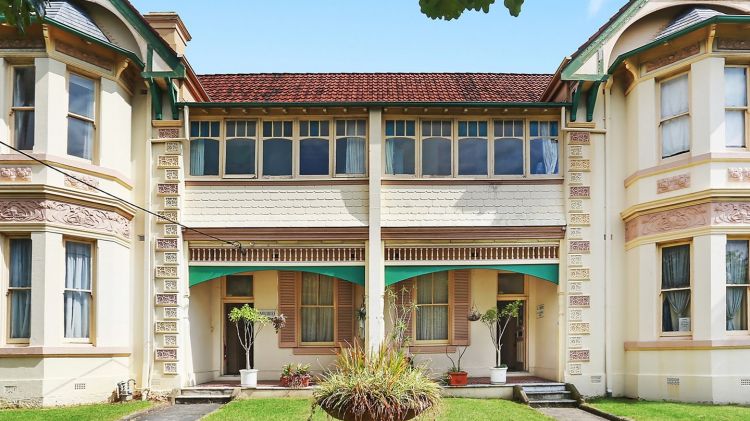By Chris Martin, City Futures Research Centre. This is an edited extract from City Futures’ submission to the review of the Boarding Houses Act 2012 (NSW). Read the full submission here.
The Boarding Houses Act 2012 was landmark legislation. Its introduction of a central, state-wide Boarding Houses Register increased visibility and knowledge of the sector, and helped put boarding houses back on the radar of local councils. The Act created for the first time in New South Wales a legislated regime of housing rights – the occupancy principles – and accessible dispute resolution for lodgers. And its provisions regarding assisted boarding houses replaced a dysfunctional licensing regime with an effective system of standards, monitoring and compliance that has improved conditions for vulnerable residents in those places.
We characterise the Act as a ‘landmark’ deliberately, because we think it should be seen not as a final legislative destination, but as indicating the way towards a more comprehensive, effective and sophisticated regulatory regime for diverse forms of shared accommodation. We submit that shared accommodation – that is, where a person does not get to choose with whom they share the intimate spaces of their housing – and the particular risks that shared accommodation involves, is really the proper object of regulation. This is what makes the Boarding Houses Act important – as far as it goes. Shared accommodation includes, but is not limited to, boarding houses; other forms include lodgements in private dwellings; student accommodation; and refuge and crisis accommodation. The key objective is to address shared accommodation, whatever the particular land use designation of the premises where it takes place. We therefore submit that the Boarding Houses Act should be replaced by a ‘Shared Accommodation Act’ that builds on the elements of the former Act.
The precise definition should be settled by consultation with all the stakeholders, but we suggest, as a starting point, that ‘shared accommodation’ is an arrangement where a resident is granted, for value, a right to occupy premises but shares sleeping space, or kitchen and bathroom space, with the grantor of the right, or with one or more other residents occupying by separate grant. Compared with housing arrangements where there is no sharing beyond any other members of the individual’s household (i.e. a mainstream residential tenancy), we submit that in shared accommodation occupation rights ought to be more readily terminated (including, for example, because of breakdown in personal relations between grantor and resident, which should never be sufficient grounds for a grantor to terminate a tenancy). By the same token, we also submit that in all forms of shared accommodation arrangement (not limited to registered boarding houses, as at present) both the premises and the proprietors themselves ought to be subject to more comprehensive standards and monitoring by public authorities than are mainstream rental premises and landlords.
Looking at the Boarding Houses Act as a model for a wider regulatory regime for shared accommodation, we submit that some elements– in particular, the occupancy principles and access to dispute resolution – should apply to all forms of shared accommodation, while other elements – such as registration – should apply to some and not others, and where they apply they should do so differently, according to the particular characteristics and risks presented by different forms of shared accommodation. This sort of differential application is already a feature of elements of the Boarding Houses Act, although the potential of it is not fully realised.
Implementing a wider, more comprehensive regime would also be an opportunity to address the definitional confusion the currently affects the boarding house sector, both in relation to other forms of shared accommodation, and in relation to other forms of housing. It can be difficult to say if a person is a tenant or a lodger, and if the premises they live in are a shared private dwelling, or one of several dwellings in a residential flat building, or a boarding house. We submit that a clear definition and regulatory regime for shared accommodation is the key to clarifying this wider confusion in planning and tenancy laws, to the benefit of individual persons and housing policy-makers.
Read the submission here.


No Comments so far ↓
There are no comments yet...Kick things off by filling out the form below.